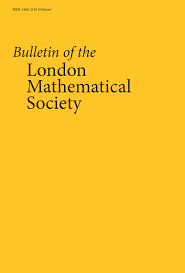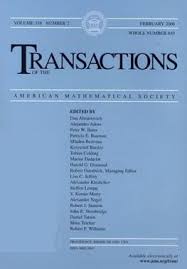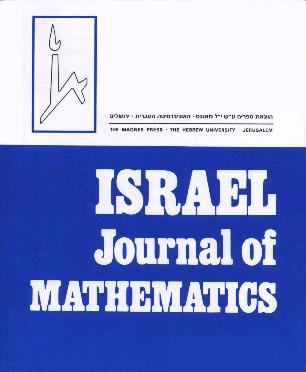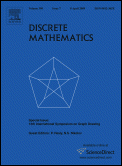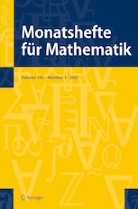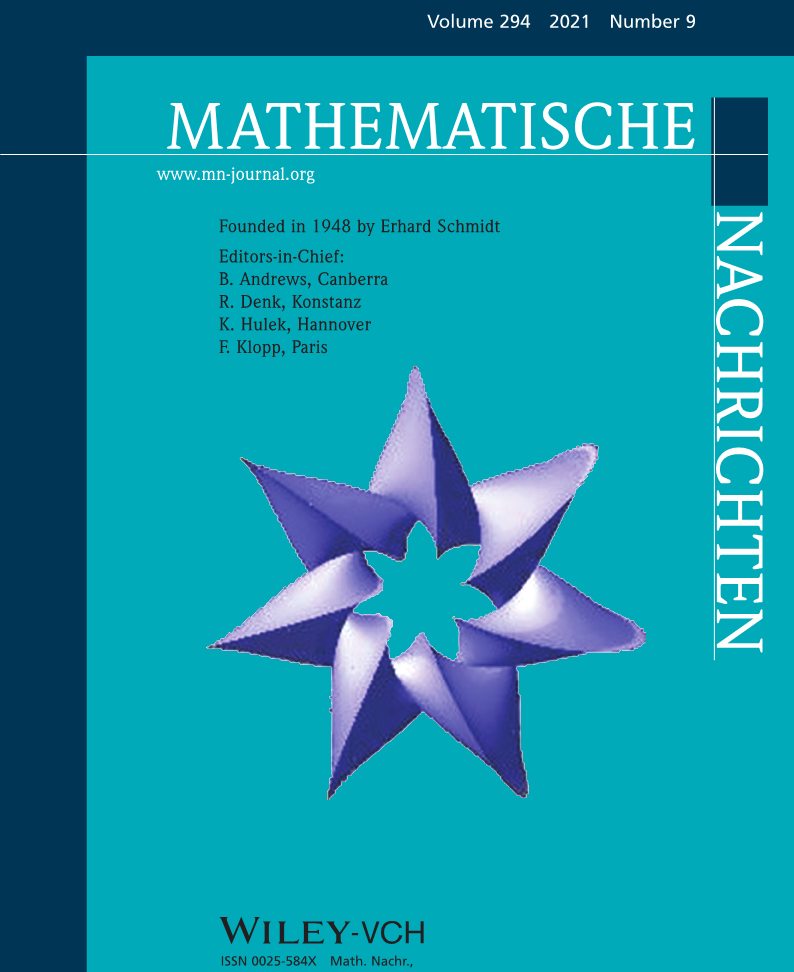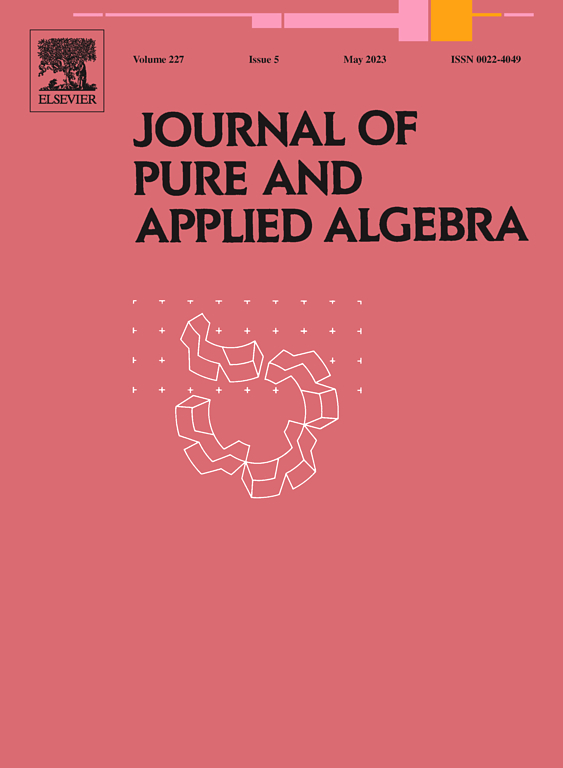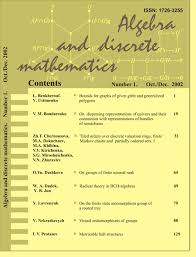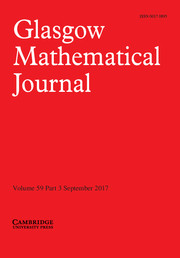publications
publications in reversed chronological order, preprints shown on the top of the list.
See also my arXiv record
2026
- Preprint-arXiv-3Profinite groups with restricted centralizers of powersCristina Acciarri, and Pavel Shumyatskysubmitted , 2026
A group \(G\) is said to have restricted centralizers if for every \(x\in G\) the centralizer \(C_G(x)\) either is finite or has finite index in \(G\). Shalev showed that a profinite group with restricted centralizers is virtually abelian. Here we take interest in profinite groups \(G\) for which there is an integer \(n\) such that \(C_G(x^n)\) is either finite or open whenever \(x\in G\). It is shown that such a group \(G\) has an open normal subgroup \(T\) with the property that \(G/Z(T)\) has finite exponent.
- JAlgebra26_s_Isaacs
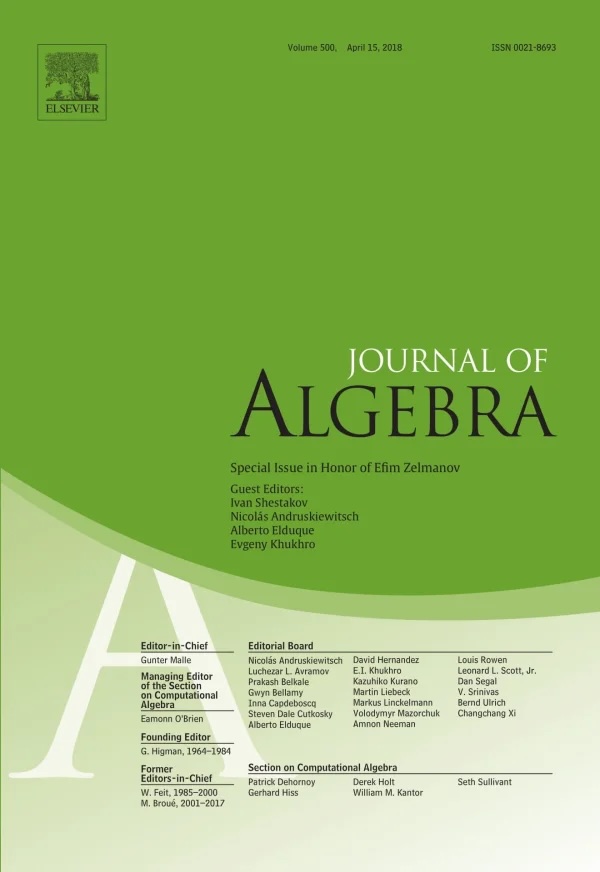 Local--global generation property of commutators in finite \(\pi\)-soluble groupsJournal of Algebra - Special Section on The memory of I.M. Isaacs, 2026
Local--global generation property of commutators in finite \(\pi\)-soluble groupsJournal of Algebra - Special Section on The memory of I.M. Isaacs, 2026For a group \(A\) acting by automorphisms on a group \(G\), let \(I_G(A)\) denote the set of commutators \([g,a]=g^{-1}g^a\), where \(g\in G\) and \(a\in A\), so that \([G,A]\) is the subgroup generated by \(I_G(A)\). We prove that if \(A\) is a \(\pi\)-group of automorphisms of a \(\pi\)-soluble finite group \(G\) such that any subset of \(I_G(A)\) generates a subgroup that can be generated by \(r\) elements, then the rank of \([G,A]\) is bounded in terms of \(r\). Examples show that such a result does not hold without the assumption of \(\pi\)-solubility. Earlier we obtained this type of results for groups of coprime automorphisms and for Sylow \(p\)-subgroups of \(p\)-soluble groups.
@article{AccGuKhuShum25, title = {Local--global generation property of commutators in finite \(\pi\)-soluble groups}, author = {Acciarri, Cristina and Guralnick, Robert M. and Khukhro, Evgeny and Shumyatsky, Pavel}, journal = {Journal of Algebra - Special Section on The memory of I.M. Isaacs}, volume = {692}, pages = {519--549}, doi = {https://doi.org/10.1016/j.jalgebra.2025.12.020}, year = {2026} }
2025
- Preprint-arXiv-2Coprime commutators in profinite groupsCristina Acciarri, and Pavel Shumyatskysubmitted, 24 pages , 2025
By a coprime commutator in a profinite group \(G\) we mean any element of the form \([x, y]\), where \(x,y\in G\) and \((|x|,|y|)=1\). It is well-known that the subgroup generated by the coprime commutators of \(G\) is precisely the pronilpotent residual \(\gamma_\infty(G)\). There are several recent works showing that finiteness conditions on the set of coprime commutators have strong impact on the properties of \(\gamma_\infty(G)\) and, more generally, on the structure of \(G\). In this paper we show that if the set of coprime commutators of a profinite group \(G\) is covered by countably many procyclic subgroups, then \(\gamma_\infty(G)\) is finite-by-procyclic. In particular, it follows that \(G\) is finite-by-pronilpotent-by-abelian.
2024
- Preprint-arXivRank type conditions on commutators in finite groupssubmitted, 21 pages , 2024
For a subgroup \(S\) of a group \(G\), let \(I_G(S)\) denote the set of commutators \([g,s]=g^{-1}g^s\), where \(g\in G\) and \(s\in S\), so that \([G,S]\) is the subgroup generated by \(I_G(S)\). We prove that if \(G\) is a \(p\)-soluble finite group with a Sylow \(p\)-subgroup \(P\) such that any subgroup generated by a subset of \(I_G(P)\) is \(r\)-generated, then \([G,P]\) has \(r\)-bounded rank. We produce examples showing that such a result does not hold without the assumption of \(p\)-solubility. Instead, we prove that if a finite group \(G\) has a Sylow \(p\)-subgroup \(P\) such that (a) any subgroup generated by a subset of \(I_G(P)\) is \(r\)-generated, and (b) for any \(x\in I_G(P)\), any subgroup generated by a subset of \(I_G(x)\) is \(r\)-generated, then \([G,P]\) has \(r\)-bounded rank. We also prove that if \(G\) is a finite group such that for every prime \(p\) dividing \(|G|\) for any Sylow \(p\)-subgroup \(P\), any subgroup generated by a subset of \(I_G(P)\) can be generated by \(r\) elements, then the derived subgroup \(G'\) has \(r\)-bounded rank. As an important tool in the proofs, we prove the following result, which is also of independent interest: if a finite group \(G\) admits a group of coprime automorphisms \(A\) such that any subgroup generated by a subset of \(I_G(A)\) is \(r\)-generated, then the rank of \([G,A]\) is \(r\)-bounded.
- AnnScNormSuperPisa
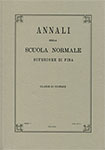 Varieties of groups and the problem on conciseness of wordsCristina Acciarri, and Pavel ShumyatskyAnnali della Scuola Normale Superiore di Pisa, Classe di Scienze - forthcoming, 2024
Varieties of groups and the problem on conciseness of wordsCristina Acciarri, and Pavel ShumyatskyAnnali della Scuola Normale Superiore di Pisa, Classe di Scienze - forthcoming, 2024A group-word \(w\) is concise in a class of groups \(\mathcal X\) if and only if the verbal subgroup \(w(G)\) is finite whenever \(w\) takes only finitely many values in a group \(G\in \mathcal X\). It is a long-standing open problem whether every word is concise in residually finite groups. In this paper we observe that the conciseness of a word \(w\) in residually finite groups is equivalent to that in the class of virtually pro-\(p\) groups. This is used to show that if \(q,n\) are positive integers and \(w\) is a multilinear commutator word, then the words \(w^q\) and \([w^q,_{n} y]\) are concise in residually finite groups. Earlier this was known only in the case where \(q\) is a prime power. In the course of the proof we establish that certain classes of groups satisfying the law \(w^q\equiv1\), or \([\delta_k^q,{}_n\, y]\equiv1\), are varieties.
@article{AccShum24, title = {Varieties of groups and the problem on conciseness of words}, author = {Acciarri, Cristina and Shumyatsky, Pavel}, journal = {Annali della Scuola Normale Superiore di Pisa, Classe di Scienze - forthcoming}, year = {2024}, doi = {http://doi.org/10.2422/2036-2145.202306_017}, }
2023
- BLondonMS23Criteria for solubility and nilpotency of finite groups with automorphismsCristina Acciarri, Robert M. Guralnick, and Pavel ShumyatskyBulletin of the London Mathematical Society, 2023
Let \(G\) be a finite group admitting a coprime automorphism \(\alpha\). Let \(J_G(\alpha)\) denote the set of all commutators \([x,\alpha]\), where \(x\) belongs to an \(\alpha\)-invariant Sylow subgroup of \(G\). We show that \([G,\alpha]\) is soluble or nilpotent if and only if any subgroup generated by a pair of elements of coprime orders from the set \(J_G(\alpha)\) is soluble or nilpotent, respectively.
@article{AccGurShum23, author = {Acciarri, Cristina and Guralnick, Robert M. and Shumyatsky, Pavel}, title = {Criteria for solubility and nilpotency of finite groups with automorphisms}, journal = {Bulletin of the London Mathematical Society}, volume = {55}, number = {3}, pages = {1340-1346}, doi = {https://doi.org/10.1112/blms.12794}, url = {https://londmathsoc.onlinelibrary.wiley.com/doi/abs/10.1112/blms.12794}, eprint = {https://londmathsoc.onlinelibrary.wiley.com/doi/pdf/10.1112/blms.12794}, year = {2023} }
2022
- TAMS22Coprime automorphisms of finite groupsCristina Acciarri, Robert Guralnick, and Pavel ShumyatskyTransactions of the American Mathematical Society, 2022
Let \(G\) be a finite group admitting a coprime automorphism \(\alpha\) of order \(e\). Denote by \(I_G(\alpha)\) the set of commutators \(g^{-1}g^\alpha\), where \(g\in G\), and by \([G,\alpha]\) the subgroup generated by \(I_G(\alpha)\). We study the impact of \(I_G(\alpha)\) on the structure of \([G,\alpha]\). Suppose that each subgroup generated by a subset of \(I_G(\alpha)\) can be generated by at most \(r\) elements. We show that the rank of \([G,\alpha]\) is \((e,r)\)-bounded. Along the way, we establish several results of independent interest. In particular, we prove that if every element of \(I_G(\alpha)\) has odd order, then \([G,\alpha]\) has odd order too. Further, if every pair of elements from \(I_G(\alpha)\) generates a soluble, or nilpotent, subgroup, then \([G,\alpha]\) is soluble, or respectively nilpotent.
@article{AccGurShum22, title = {Coprime automorphisms of finite groups}, author = {Acciarri, Cristina and Guralnick, Robert and Shumyatsky, Pavel}, journal = {Transactions of the American Mathematical Society}, volume = {375}, number = {7}, pages = {4549--4565}, doi = {https://doi.org/10.1090/tran/8553}, year = {2022} } - MathZ22
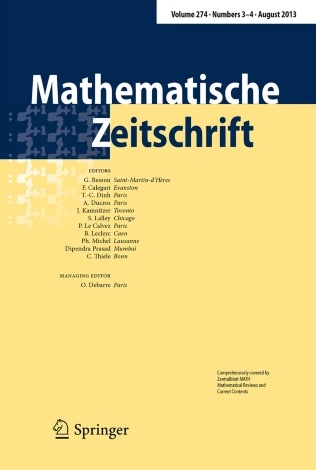 Profinite groups with restricted centralizers of \(\pi\,\)-elementsCristina Acciarri, and Pavel ShumyatskyMathematische Zeitschrift, 2022
Profinite groups with restricted centralizers of \(\pi\,\)-elementsCristina Acciarri, and Pavel ShumyatskyMathematische Zeitschrift, 2022A group \(G\) is said to have restricted centralizers if for each \(g\) in \(G\) the centralizer \(C_G(g)\) either is finite or has finite index in \(G\). Shalev showed that a profinite group with restricted centralizers is virtually abelian. Given a set of primes \(\pi\), we take interest in profinite groups with restricted centralizers of \(\pi\)-elements. It is shown that such a profinite group has an open subgroup of the form \(P\times Q\), where \(P\) is an abelian pro-\(\pi\) subgroup and \(Q\) is a pro-\(\pi'\) subgroup. This significantly strengthens a result from our earlier paper.
@article{AccShum22, title = {Profinite groups with restricted centralizers of \(\pi\,\)-elements}, author = {Acciarri, Cristina and Shumyatsky, Pavel}, journal = {Mathematische Zeitschrift}, volume = {301}, number = {1}, pages = {1039--1045}, doi = {https://doi.org/10.1007/s00209-021-02955-9}, year = {2022}, }
2021
- IsraelJMath21A stronger form of Neumann’s BFC-theoremCristina Acciarri, and Pavel ShumyatskyIsrael Journal of Mathematics, 2021
Given a group \(G\), we write \(x^G\) for the conjugacy class of \(G\) containing the element \(x\). A famous theorem of B. H. Neumann states that if \(G\) is a group in which all conjugacy classes are finite with bounded size, then the derived group \(G'\) is finite. We establish the following result. Let \(n\) be a positive integer and \(K\) a subgroup of a group \(G\) such that \(|x^G|\leq n\) for each \(x\in K\). Let \(H=\langle K^G\rangle\) be the normal closure of \(K\). Then the order of the derived group \(H'\) is finite and \(n\)-bounded. Some corollaries of this result are also discussed.
@article{AccShum21, title = {A stronger form of Neumann’s BFC-theorem}, author = {Acciarri, Cristina and Shumyatsky, Pavel}, journal = {Israel Journal of Mathematics}, volume = {242}, number = {1}, pages = {269--278}, doi = {https://doi.org/10.1007/s11856-021-2133-1}, year = {2021}, } - DiscreteMath21Genus, thickness and crossing number of graphs encoding the generating properties of finite groupsCristina Acciarri, and Andrea LucchiniDiscrete Mathematics, 2021
Assume that \(G\) is a finite group and let \(a\) and \(b\) be non-negative integers. We define an undirected graph \(\Gamma_{a,b}(G)\) whose vertices correspond to the elements of \(G^a\cup G^b\) and in which two tuples \((x_1,\dots,x_a)\) and \((y_1,\dots,y_b)\) are adjacent if and only if \(\langle x_1,\dots,x_a,y_1,\dots,y_b \rangle =G\). Our aim is to estimate the genus, the thickness and the crossing number of the graph \(\Gamma_{{a,b}}(G)\) when \(a\) and \(b\) are positive integers, giving explicit lower bounds on these invariants in terms of \(|G|.\)
@article{AccLucch21, title = {Genus, thickness and crossing number of graphs encoding the generating properties of finite groups}, journal = {Discrete Mathematics}, volume = {344}, number = {4}, pages = {112289}, year = {2021}, issn = {0012-365X}, doi = {https://doi.org/10.1016/j.disc.2021.112289}, url = {https://www.sciencedirect.com/science/article/pii/S0012365X21000029}, author = {Acciarri, Cristina and Lucchini, Andrea}, keywords = {Generating graph, Genus, Thickness, Crossing numbers}, } - MonatshMath21On the rank of a finite group of odd order with an involutory automorphismCristina Acciarri, and Pavel ShumyatskyMonatshefte für Mathematik, 2021
Let \(G\) be a finite group of odd order admitting an involutory automorphism \(\phi\), and let \(G_{-\phi}\) be the set of elements of \(G\) transformed by \(\phi\) into their inverses. Note that \([G,\phi]\) is precisely the subgroup generated by \(G_{-\phi}\). Suppose that each subgroup generated by a subset of \(G_{-\phi}\) can be generated by at most \(r\) elements. We show that the rank of \([G,\phi]\) is \(r\)-bounded.
@article{AccShum21_2, title = {On the rank of a finite group of odd order with an involutory automorphism}, journal = {Monatshefte für Mathematik}, volume = {194}, number = {3}, pages = {461--469}, year = {2021}, issn = {1436-5081}, doi = {https://doi.org/10.1007/s00605-020-01479-4}, author = {Acciarri, Cristina and Shumyatsky, Pavel}, }
2020
- MathNachr20Graphs encoding the generating properties of a finite groupCristina Acciarri, and Andrea LucchiniMathematische Nachrichten, 2020
Assume that \(G\) is a finite group. For every \(a, b \in\mathbb{N},\) we define a graph \(\Gamma_{a,b}(G)\) whose vertices correspond to the elements of \(G^a\cup G^b\) and in which two tuples \((x_1,\dots,x_a)\) and \((y_1,\dots,y_b)\) are adjacent if and only if \(\langle x_1,\dots,x_a,y_1,\dots,y_b \rangle =G.\) We study several properties of these graphs (isolated vertices, loops, connectivity, diameter of the connected components) and we investigate the relations between their properties and the group structure, with the aim of understanding which information about \(G\) is encoded by these graphs.
@article{AccLucch20, author = {Acciarri, Cristina and Lucchini, Andrea}, title = {Graphs encoding the generating properties of a finite group}, journal = {Mathematische Nachrichten}, volume = {293}, number = {9}, pages = {1644-1674}, keywords = {finite group, generating graph, generation, probabilistic zeta function, swap conjecture}, doi = {https://doi.org/10.1002/mana.201900144}, url = {https://onlinelibrary.wiley.com/doi/abs/10.1002/mana.201900144}, eprint = {https://onlinelibrary.wiley.com/doi/pdf/10.1002/mana.201900144}, year = {2020}, } - AnnMatPuraAppl20
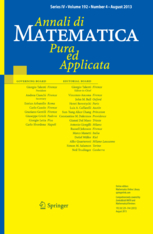 Engel-like conditions in fixed points of automorphisms of profinite groupsCristina Acciarri, and Danilo SilveiraAnnali di Matematica Pura ed Applicata, 2020
Engel-like conditions in fixed points of automorphisms of profinite groupsCristina Acciarri, and Danilo SilveiraAnnali di Matematica Pura ed Applicata, 2020Let \(q\) be a prime and \(A\) an elementary abelian \(q\)-group acting as a coprime group of automorphisms on a profinite group \(G\). We show that if \(A\) is of order \(q^2\) and some power of each element in \(C_G(a)\) is Engel in \(G\) for any \(a\in A^{\#}\), then \(G\) is locally virtually nilpotent. Assuming that \(A\) is of order \(q^3\) we prove that if some power of each element in \(C_G(a)\) is Engel in \(C_G(a)\) for any \(a\in A^{\#}\), then \(G\) is locally virtually nilpotent. Some analogues of quantitative nature for finite groups are also obtained.
@article{AccSilv20, author = {Acciarri, Cristina and Silveira, Danilo}, title = {Engel-like conditions in fixed points of automorphisms of profinite groups}, journal = {Annali di Matematica Pura ed Applicata}, pages = {187--197}, volume = {199}, number = {1}, issn = {1618-1891}, doi = {https://doi.org/10.1007/s10231-019-00872-7}, year = {2020}, }
2019
- JAlgebra19
 On groups in which Engel sinks are cyclicCristina Acciarri, and Pavel ShumyatskyJournal of Algebra, 2019
On groups in which Engel sinks are cyclicCristina Acciarri, and Pavel ShumyatskyJournal of Algebra, 2019For an element \(g\) of a group \(G\), an Engel sink is a subset \(\mathcal{E}(g)\) such that for every \(x\in G\) all sufficiently long commutators \([x,g,g,\ldots,g]\) belong to \(\mathcal{E}(g)\). We conjecture that if \(G\) is a profinite group in which every element admits a sink that is a procyclic subgroup, then \(G\) is procyclic-by-(locally nilpotent). We prove the conjecture in two cases -- when \(G\) is a finite group, or a soluble pro-\(p\) group.
@article{AccShum19, title = {On groups in which Engel sinks are cyclic}, journal = {Journal of Algebra}, volume = {539}, pages = {366-376}, year = {2019}, issn = {0021-8693}, doi = {https://doi.org/10.1016/j.jalgebra.2019.08.019}, url = {https://www.sciencedirect.com/science/article/pii/S0021869319304636}, author = {Acciarri, Cristina and Shumyatsky, Pavel}, keywords = {Profinite groups, Engel condition}, } - PAMS19
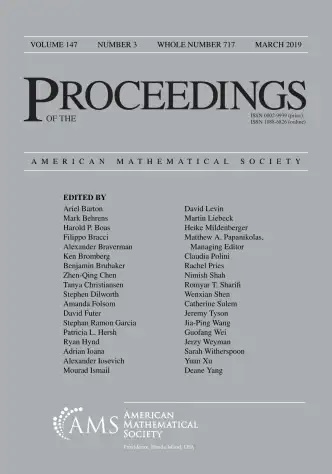 Profinite groups with an automorphism whose fixed points are right EngelCristina Acciarri, Evgeny Khukhro, and Pavel ShumyatskyProceedings of the American Mathematical Society, 2019
Profinite groups with an automorphism whose fixed points are right EngelCristina Acciarri, Evgeny Khukhro, and Pavel ShumyatskyProceedings of the American Mathematical Society, 2019An element \(g\) of a group \(G\) is said to be right Engel if for every \(x\in G\) there is a number \(n=n(g,x)\) such that \([g,{}_{n}x]=1\). We prove that if a profinite group \(G\) admits a coprime automorphism \(\varphi\) of prime order such that every fixed point of \(\varphi\) is a right Engel element, then \(G\) is locally nilpotent.
@article{AccKhukShum19, author = {Acciarri, Cristina and Khukhro, Evgeny and Shumyatsky, Pavel}, title = {Profinite groups with an automorphism whose fixed points are right Engel}, journal = {Proceedings of the American Mathematical Society}, volume = {147}, number = {9}, pages = {3691--3703}, year = {2019}, issn = {0002-9939}, doi = {https://doi.org/10.1090/proc/14519}, } - BAustMS19
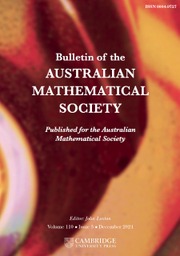 The generating graph of infinite abelian groupsCristina Acciarri, and Andrea LucchiniBulletin of the Australian Mathematical Society, 2019
The generating graph of infinite abelian groupsCristina Acciarri, and Andrea LucchiniBulletin of the Australian Mathematical Society, 2019For a group \(G,\) let \(\Gamma(G)\) denote the graph defined on the elements of \(G\) in such a way that two distinct vertices are connected by an edge if and only if they generate \(G\). Moreover let \(\Gamma^*(G)\) be the subgraph of \(\Gamma(G)\) that is induced by all the vertices of \(\Gamma(G)\) that are not isolated. We prove that if \(G\) is a \(2\)-generated non-cyclic abelian group then \(\Gamma^*(G)\) is connected. Moreover \(\mathrm{diam}(\Gamma^*(G))=2\) if the torsion subgroup of \(G\) is non-trivial and \(\mathrm{diam}(\Gamma^*(G))=\infty\) otherwise. If \(F\) is the free group of rank 2, then \(\Gamma^*(F)\) is connected and we deduce from \(\mathrm{diam}(\Gamma^*(\mathbb{Z}\times \mathbb{Z}))=\infty\) that \(\mathrm{diam}(\Gamma^*(F))=\infty.\)
@article{AccLucch19, title = {The generating graph of infinite abelian groups}, volume = {100}, doi = {https://doi.org/10.1017/S0004972718001466}, number = {1}, journal = {Bulletin of the Australian Mathematical Society}, author = {Acciarri, Cristina and Lucchini, Andrea}, year = {2019}, pages = {68--75}, } - JPAA19Engel sinks of fixed points in finite groupsCristina Acciarri, Pavel Shumyatsky, and Danilo SilveiraJournal of Pure and Applied Algebra, 2019
For an element \(g\) of a group \(G\), an Engel sink is a subset \(\mathscr{E}(g)\) such that for every \(x\in G\) all sufficiently long commutators \([x,g,g,\ldots,g]\) belong to \(\mathscr{E}(g)\). Let \(q\) be a prime, let \(m\) be a positive integer and \(A\) an elementary abelian group of order \(q^2\) acting coprimely on a finite group \(G\). We show that if for each nontrivial element \(a\) in \(A\) and every element \(g\in C_{G}(a)\) the cardinality of the smallest Engel sink \(\mathscr{E}(g)\) is at most \(m\), then the order of \(\gamma_\infty(G)\) is bounded in terms of \(m\) only. Moreover we prove that if for each \(a\in A\setminus \{1\}\) and every element \(g\in C_{G}(a)\), the smallest Engel sink \(\mathscr{E}(g)\) generates a subgroup of rank at most \(m\), then the rank of \(\gamma_\infty(G)\) is bounded in terms of \(m\) and \(q\) only.
@article{AccShumSilv19, title = {Engel sinks of fixed points in finite groups}, journal = {Journal of Pure and Applied Algebra}, volume = {223}, number = {11}, pages = {4592-4601}, year = {2019}, issn = {0022-4049}, doi = {https://doi.org/10.1016/j.jpaa.2019.02.006}, url = {https://www.sciencedirect.com/science/article/pii/S0022404919300404}, author = {Acciarri, Cristina and Shumyatsky, Pavel and Silveira, Danilo}, keywords = {Finite groups, Automorphisms, Centralizers, Engel condition}, }
2018
- JGroupTh21
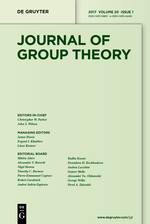 Profinite groups and centralizers of coprime automorphisms whose elements are EngelCristina Acciarri, and Danilo S. SilveiraJournal of Group Theory, 2018
Profinite groups and centralizers of coprime automorphisms whose elements are EngelCristina Acciarri, and Danilo S. SilveiraJournal of Group Theory, 2018Let \(q\) be a prime, \(n\) a positive integer and \(A\) an elementary abelian group of order \(q^r\) with \(r\geq2\) acting on a finite \(q'\)-group \(G\). We show that if all elements in \(\gamma_{r-1}(C_G(a))\) are \(n\)-Engel in \(G\) for any \(a\in A^\#\), then \(\gamma_{r-1}(G)\) is \(k\)-Engel for some \(\{n,q,r\}\)-bounded number \(k\), and if, for some integer \(d\) such that \(2^d\leq r-1\), all elements in the \(d\)th derived group of \(C_G(a)\) are \(n\)-Engel in \(G\) for any \(a\in A^\#\), then the \(d\)th derived group \(G^{(d)}\) is \(k\)-Engel for some \(\{n,q,r\}\)-bounded number \(k\). Assuming \(r\geq 3\) we prove that if all elements in \(\gamma_{r-2}(C_G(a))\) are \(n\)-Engel in \(C_G(a)\) for any \(a\in A^\#\), then \(\gamma_{r-2}(G)\) is \(k\)-Engel for some \(\{n,q,r\}\)-bounded number \(k\), and if, for some integer \(d\) such that \(2^d\leq r-2\), all elements in the $d$th derived group of \(C_G(a)\) are \(n\)-Engel in \(C_G(a)\) for any \(a\in A^\#,\) then the \(d\)th derived group \(G^{(d)}\) is \(k\)-Engel for some \(\{n,q,r\}\)-bounded number \(k\). Analogous (non-quantitative) results for profinite groups are also obtained.
@article{AccSilv18, url = {https://doi.org/10.1515/jgth-2018-0001}, title = {Profinite groups and centralizers of coprime automorphisms whose elements are Engel}, author = {Acciarri, Cristina and da Silveira, Danilo S.}, pages = {485--509}, volume = {21}, number = {3}, journal = {Journal of Group Theory}, doi = {https://doi.org/10.1515/jgth-2018-0001}, year = {2018}, } - AnnMatPuraAppl18
 On groups with automorphisms whose fixed points are EngelCristina Acciarri, Pavel Shumyatsky, and Danilo Sanção SilveiraAnnali di Matematica Pura ed Applicata, 2018
On groups with automorphisms whose fixed points are EngelCristina Acciarri, Pavel Shumyatsky, and Danilo Sanção SilveiraAnnali di Matematica Pura ed Applicata, 2018We study finite and profinite groups admitting an action by an elementary abelian group under which the centralizers of automorphisms consist of Engel elements. In particular, we prove the following theorems. Let \(q\) be a prime and \(A\) an elementary abelian \(q\)-group of order \(q^2\) acting coprimely on a profinite group \(G\). Assume that all elements in \(C_{G}(a)\) are Engel in \(G\) for each \(a\in A^{\#}\). Then \(G\) is locally nilpotent. Let \(q\) be a prime, \(n\) a positive integer and \(A\) an elementary abelian group of order \(q^3\) acting coprimely on a finite group \(G\). Assume that for each \(a\in A^{\#}\) every element of \(C_{G}(a)\) is \(n\)-Engel in \(C_{G}(a)\). Then the group \(G\) is \(k\)-Engel for some \(\{n,q\}\)-bounded number \(k\).
@article{AccShumSilv18, author = {Acciarri, Cristina and Shumyatsky, Pavel and da Silveira, Danilo Sanção}, year = {2018}, title = {On groups with automorphisms whose fixed points are Engel}, journal = {Annali di Matematica Pura ed Applicata}, pages = {307--316}, volume = {197}, number = {1}, doi = {https://doi.org/10.1007/s10231-017-0680-1}, issn = {1618-1891}, url = {https://doi.org/10.1007/s10231-017-0680-1}, }
2017
- RendSMUPadova17
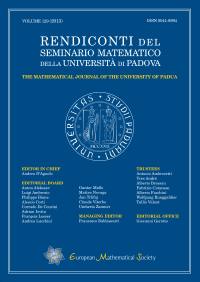 Coverings of commutators in profinite groupsCristina Acciarri, and Pavel ShumyatskyRendiconti del Seminario Matematico della Universita di Padova, 2017
Coverings of commutators in profinite groupsCristina Acciarri, and Pavel ShumyatskyRendiconti del Seminario Matematico della Universita di Padova, 2017Let \(w\) be a group-word. Suppose that the set of all \(w\)-values in a profinite group \(G\) is contained in a union of countably many subgroups. It is natural to ask in what way the structure of the verbal subgroup \(w(G)\) depends on the properties of the covering subgroups. The present article is a survey of recent results related to that question. In particular we survey results on finite and countable coverings of word-values (mostly commutators) by procyclic, abelian, nilpotent, and soluble subgroups, as well as subgroups with finiteness conditions. The last section of the paper is devoted to relation of the described results with Hall's problem on conciseness of group-words.
@article{AccShum17, title = {Coverings of commutators in profinite groups}, author = {Acciarri, Cristina and Shumyatsky, Pavel}, journal = {Rendiconti del Seminario Matematico della Universita di Padova}, volume = {137}, pages = {237--257}, year = {2017}, doi = {https://doi.org/10.4171/RSMUP/137-14}, } - JAlgebra17
 Commutators and commutator subgroups in profinite groupsCristina Acciarri, and Pavel ShumyatskyJournal of Algebra, 2017
Commutators and commutator subgroups in profinite groupsCristina Acciarri, and Pavel ShumyatskyJournal of Algebra, 2017Let \(G\) be a profinite group. We prove that the commutator subgroup \(G'\) is finite-by-procyclic if and only if the set of all commutators of \(G\) is contained in a union of countably many procyclic subgroups.
@article{AccShum17_2, title = {Commutators and commutator subgroups in profinite groups}, journal = {Journal of Algebra}, volume = {473}, pages = {166-182}, year = {2017}, issn = {0021-8693}, doi = {https://doi.org/10.1016/j.jalgebra.2016.11.001}, url = {https://www.sciencedirect.com/science/article/pii/S0021869316304100}, author = {Acciarri, Cristina and Shumyatsky, Pavel}, keywords = {Profinite groups, Procyclic subgroups, Commutators}, }
2016
- JAlgebra16
 Profinite groups and the fixed points of coprime automorphismsCristina Acciarri, and Pavel ShumyatskyJournal of Algebra, 2016
Profinite groups and the fixed points of coprime automorphismsCristina Acciarri, and Pavel ShumyatskyJournal of Algebra, 2016The main result of the paper is the following theorem. Let \(q\) be a prime and \(A\) an elementary abelian group of order \(q^3\). Suppose that \(A\) acts coprimely on a profinite group \(G\) and assume that \(C_G(a)\) is locally nilpotent for each \(a\in A^{\#}\). Then the group \(G\) is locally nilpotent.
@article{AccShum16, title = {Profinite groups and the fixed points of coprime automorphisms}, journal = {Journal of Algebra}, volume = {452}, pages = {188-195}, year = {2016}, issn = {0021-8693}, doi = {https://doi.org/10.1016/j.jalgebra.2016.01.010}, url = {https://www.sciencedirect.com/science/article/pii/S0021869316000338}, author = {Acciarri, Cristina and Shumyatsky, Pavel}, keywords = {Profinite groups, Automorphisms, Centralizers}, }
2014
- JAlgebra14
 On finite groups in which coprime commutators are covered by few cyclic subgroupsCristina Acciarri, and Pavel ShumyatskyJournal of Algebra, 2014
On finite groups in which coprime commutators are covered by few cyclic subgroupsCristina Acciarri, and Pavel ShumyatskyJournal of Algebra, 2014The coprime commutators \(\gamma_j^*\) and \(\delta_j^*\) were recently introduced as a tool to study properties of finite groups that can be expressed in terms of commutators of elements of coprime orders. They are defined as follows. Let \(G\) be a finite group. Every element of \(G\) is both a \(\gamma_1^*\)-commutator and a \(\delta_0^*\)-commutator. Now let \(j\geq 2\) and let \(X\) be the set of all elements of \(G\) that are powers of \(\gamma_{j-1}^*\)-commutators. An element \(g\) is a \(\gamma_j^*\)-commutator if there exist \(a\in X\) and \(b\in G\) such that \(g=[a,b]\) and \((|a|,|b|)=1\). For \(j\geq 1\) let \(Y\) be the set of all elements of \(G\) that are powers of \(\delta_{j-1}^*\)-commutators. The element \(g\) is a \(\delta_j^*\)-commutator if there exist \(a,b\in Y\) such that \(g=[a,b]\) and \((|a|,|b|)=1\). The subgroups of $G$ generated by all \(\gamma_j^*\)-commutators and all \(\delta_j^*\)-commutators are denoted by \(\gamma_j^*(G)\) and \(\delta_j^*(G)\), respectively. For every \(j\geq2\) the subgroup \(\gamma_j^*(G)\) is precisely the last term of the lower central series of \(G\) (which throughout the paper is denoted by \(\gamma_\infty(G)\)) while for every \(j\geq1\) the subgroup \(\delta_j^*(G)\) is precisely the last term of the lower central series of \(\delta_{j-1}^*(G)\), that is, \(\delta_j^*(G)=\gamma_\infty(\delta_{j-1}^*(G))\). In the present paper we prove that if \(G\) possesses \(m\) cyclic subgroups whose union contains all \(\gamma_j^*\)-commutators of \(G\), then \(\gamma_j^*(G)\) contains a subgroup \(\Delta\), of \(m\)-bounded order, which is normal in \(G\) and has the property that \(\gamma_{j}^{*}(G)/\Delta\) is cyclic. If \(j\geq2\) and \(G\) possesses \(m\) cyclic subgroups whose union contains all \(\delta_j^*\)-commutators of \(G\), then the order of \(\delta_j^*(G)\) is \(m\)-bounded.
@article{AccShum14, title = {On finite groups in which coprime commutators are covered by few cyclic subgroups}, journal = {Journal of Algebra}, volume = {407}, pages = {358-371}, year = {2014}, issn = {0021-8693}, doi = {https://doi.org/10.1016/j.jalgebra.2014.02.033}, url = {https://www.sciencedirect.com/science/article/pii/S0021869314001598}, author = {Acciarri, Cristina and Shumyatsky, Pavel}, keywords = {Finite groups, Cyclic subgroups, Commutators}, } - BAustMS14
 Conciseness of coprime commutators in finite groupsCristina Acciarri, Pavel Shumyatsky, and Anitha ThillaisundaramBulletin of the Australian Mathematical Society, 2014
Conciseness of coprime commutators in finite groupsCristina Acciarri, Pavel Shumyatsky, and Anitha ThillaisundaramBulletin of the Australian Mathematical Society, 2014Let \(G\) be a finite group. We show that the order of the subgroup generated by coprime \(\gamma_k\)-commutators (respectively \(\delta_k\)-commutators) is bounded in terms of the size of the set of coprime \(\gamma_k\)-commutators (respectively \(\delta_k\)-commutators). This is in parallel with the classical theorem due to Turner-Smith that the words \(\gamma_k\) and \(\delta_k\) are concise.
@article{AccShumThill14, title = {Conciseness of coprime commutators in finite groups}, volume = {89}, doi = {10.1017/S0004972713000361}, number = {2}, journal = {Bulletin of the Australian Mathematical Society}, author = {Acciarri, Cristina and Shumyatsky, Pavel and Thillaisundaram, Anitha}, year = {2014}, pages = {252--258}, } - AnnMatPuraAppl14
 Centralizers of coprime automorphisms of finite groupsCristina Acciarri, and Pavel ShumyatskyAnnali di Matematica Pura ed Applicata, 2014
Centralizers of coprime automorphisms of finite groupsCristina Acciarri, and Pavel ShumyatskyAnnali di Matematica Pura ed Applicata, 2014Let \(A\) be an elementary abelian group of order \(p^{k}\) with \(k\geq 3\) acting on a finite \(p'\)-group \(G\). The following results are proved. If \(\gamma_{k-2}(C_{G}(a))\) is nilpotent of class at most \(c\) for any \(a\in A^{\#}\), then \(\gamma_{k-2}(G)\) is nilpotent and has \(\{c,k,p\}\)-bounded nilpotency class. If, for some integer \(d\) such that \(2^{d}+2\leq k\), the \(d\)th derived group of \(C_{G}(a)\) is nilpotent of class at most \(c\) for any \(a\in A^{\#}\), then the \(d\)th derived group \(G^{(d)}\) is nilpotent and has \(\{c,k,p\}\)-bounded nilpotency class.
@article{AccShum14_3, author = {Acciarri, Cristina and Shumyatsky, Pavel}, year = {2014}, title = {Centralizers of coprime automorphisms of finite groups}, journal = {Annali di Matematica Pura ed Applicata}, pages = {317--324}, volume = {193}, number = {2}, issn = {1618-1891}, doi = {https://doi.org/10.1007/s10231-012-0274-x}, } - JPAA18On words that are concise in residually finite groupsCristina Acciarri, and Pavel ShumyatskyJournal of Pure and Applied Algebra, 2014
A group-word \(w\) is called concise if whenever the set of \(w\)-values in a group \(G\) is finite it always follows that the verbal subgroup \(w(G)\,\) is finite. More generally, a word \(w\,\) is said to be concise in a class of groups \(X\,\) if whenever the set of \(w\,\)-values is finite for a group \(G\in X\,\), it always follows that \(w(G)\,\) is finite. P. Hall asked whether every word is concise. Due to Ivanov the answer to this problem is known to be negative. Dan Segal asked whether every word is concise in the class of residually finite groups. In this direction we prove that if \(w\,\) is a multilinear commutator and \(q\,\) is a prime-power, then the word \(w^q\,\) is indeed concise in the class of residually finite groups. Further, we show that in the case where \(w=\gamma_k\,\) the word \(w^q\,\) is boundedly concise in the class of residually finite groups. It remains unknown whether the word \(w^q\,\) is actually concise in the class of all groups.
@article{AccShum14_2, title = {On words that are concise in residually finite groups}, journal = {Journal of Pure and Applied Algebra}, volume = {218}, number = {1}, pages = {130-134}, year = {2014}, issn = {0022-4049}, doi = {https://doi.org/10.1016/j.jpaa.2013.04.018}, url = {https://www.sciencedirect.com/science/article/pii/S0022404913000819}, author = {Acciarri, Cristina and Shumyatsky, Pavel}, }
2013
- MathZ13
 On profinite groups in which commutators are covered by finitely many subgroupsCristina Acciarri, and Pavel ShumyatskyMathematische Zeitschrift, 2013
On profinite groups in which commutators are covered by finitely many subgroupsCristina Acciarri, and Pavel ShumyatskyMathematische Zeitschrift, 2013For a family of group words \(w\) we show that if \(G\) is a profinite group in which all \(w\)-values are contained in a union of finitely many subgroups with a prescribed property, then the verbal subgroup \(w(G)\) has the same property as well. In particular, we show this in the case where the subgroups are periodic or of finite rank. If \(G\) contains finitely many subgroups \(G_1,G_2,\dots,G_s\) of finite exponent \(e\) whose union contains all \(\gamma_k\)-values in \(G\), it is shown that \(\gamma_k(G)\) has finite \((e,k,s)\)-bounded exponent. If \(G\) contains finitely many subgroups \(G_1,G_2,\dots,G_s\) of finite rank \(r\) whose union contains all \(\gamma_k\)-values, it is shown that \(\gamma_k(G)\) has finite \((k,r,s)\)-bounded rank.
@article{AccShum13, author = {Acciarri, Cristina and Shumyatsky, Pavel}, year = {2013}, title = {On profinite groups in which commutators are covered by finitely many subgroups}, journal = {Mathematische Zeitschrift}, pages = {239--248}, volume = {274}, issue = {1}, issn = {1432-1823}, doi = {https://doi.org/10.1007/s00209-012-1067-z}, } - JAlgebra13
 Double automorphisms of graded Lie algebrasCristina Acciarri, and Pavel ShumyatskyJournal of Algebra, 2013
Double automorphisms of graded Lie algebrasCristina Acciarri, and Pavel ShumyatskyJournal of Algebra, 2013We introduce the concept of a double automorphism of an \(A\)-graded Lie algebra \(L\). Roughly, this is an automorphism of \(L\) which also induces an automorphism of the group \(A\). It is clear that the set of all double automorphisms of \(L\) forms a subgroup in \(Aut\, L\). In the present paper we prove several nilpotency criteria for a graded Lie algebra admitting a finite group of double automorphisms. One of the obtained results is as follows. Let \(A\) be a torsion-free abelian group and \(L\) an \(A\)-graded Lie algebra in which \([L,\underbrace{L_0,\ldots,L_0}_{k}]=0\). Assume that \(L\) admits a finite group of double automorphisms \(H\) such that \(C_A(h)=0\) for all nontrivial \(h\in H\) and \(C_L(H)\) is nilpotent of class \(c\). Then \(L\) is nilpotent and the class of \(L\) is bounded in terms of \(|H|\), \(k\) and \(c\) only. We also give an application of our results to groups admitting a Frobenius group of automorphisms.
@article{AccShum13_2, title = {Double automorphisms of graded Lie algebras}, journal = {Journal of Algebra}, volume = {387}, pages = {1-10}, year = {2013}, issn = {0021-8693}, doi = {https://doi.org/10.1016/j.jalgebra.2012.12.023}, url = {https://www.sciencedirect.com/science/article/pii/S0021869313000124}, author = {Acciarri, Cristina and Shumyatsky, Pavel}, keywords = {Automorphisms, Graded Lie algebras}, }
2012
- AlgebraDiscMath12On verbal subgroups in finite and profinite groupsCristina Acciarri, and Pavel ShumyatskyAlgebra and Discrete Mathematics, 2012
Let \(w\) be a multilinear commutator word. In the present paper we describe recent results that show that if \(G\) is a profinite group in which all \(w\)-values are contained in a union of finitely (or in some cases countably) many subgroups with a prescribed property, then the verbal subgroup \(w(G)\) has the same property as well. In particular, we show this in the case where the subgroups are periodic or of finite rank.
@article{AccShu12, author = {Acciarri, Cristina and Shumyatsky, Pavel}, title = {On verbal subgroups in finite and profinite groups}, journal = {Algebra and Discrete Mathematics}, year = {2012}, volume = {14}, number = {1}, pages = {1--13}, mathscinet = {http://mathscinet.ams.org/mathscinet-getitem?mr=3052317}, } - JGroupTh12
 A focal subgroup theorem for outer commutator wordsCristina Acciarri, Gustavo A. Fernández-Alcober, and Pavel ShumyatskyJournal of Group Theory, 2012
A focal subgroup theorem for outer commutator wordsCristina Acciarri, Gustavo A. Fernández-Alcober, and Pavel ShumyatskyJournal of Group Theory, 2012Let \(G\) be a finite group of order \(p^am\), where \(p\) is a prime and \(m\) is not divisible by \(p\), and let \(P\) be a Sylow \(p\)-subgroup of \(G\). If \(w\) is an outer commutator word, we prove that \(P\cap w(G)\) is generated by the intersection of \(P\) with the set of \(m\)th powers of all values of \(w\) in \(G\).
@article{AccFerAlShum12, url = {https://doi.org/10.1515/jgt.2011.113}, title = {A focal subgroup theorem for outer commutator words}, author = {Acciarri, Cristina and Fernández-Alcober, Gustavo A. and Shumyatsky, Pavel}, pages = {397--405}, volume = {15}, number = {3}, journal = {Journal of Group Theory}, doi = {https://doi.org/10.1515/jgt.2011.113}, year = {2012}, } - GlasgMathJ12Derived subgroups of fixed points in profinite groupsCristina Acciarri, Aline De Souza Lima, and Pavel ShumyatskyGlasgow Mathematical Journal, 2012
The main result of this paper is the following theorem. Let \(q\) be a prime, \(A\) an elementary abelian group of order \(q^3\). Suppose that \(A\) acts as a coprime group of automorphisms on a profinite group \(G\) in such a manner that \(C_G(a)'\) is periodic for each \(a \in A^{\#}\). Then \(G'\) is locally finite.
@article{AccdeSouzaShum12, title = {Derived subgroups of fixed points in profinite groups}, volume = {54}, doi = {https://doi.org/10.1017/S0017089511000383}, number = {1}, journal = {Glasgow Mathematical Journal}, author = {Acciarri, Cristina and De Souza Lima, Aline and Shumyatsky, Pavel}, year = {2012}, pages = {97--105}, } - Proceed_IGT10Positive laws on generators in powerful pro-\(p\,\) groupsCristina Acciarri, and Gustavo A. Fernández-AlcoberIn Ischia Group Theory 2010: Proceedings of the Conference: Ischia, Naples, Italy, 14-17 April 2010, 2012
If \(G\) is a finitely generated powerful pro-\(p\) group satisfying a certain law \(v\equiv 1\), and if \(G\) can be generated by a normal subset \(T\) of finite width which satisfies a positive law, we prove that \(G\) is nilpotent. Furthermore, the nilpotency class of \(G\) can be bounded in terms of the prime \(p\), the number of generators of \(G\), the law \(v\equiv 1\), the width of \(T\), and the degree of the positive law. The main interest of this result is the application to verbal subgroups: if \(G\) is a \(p\)-adic analytic pro-\(p\) group in which all values of a word \(w\) satisfy positive law, and if the verbal subgroup \(w(G)\) is powerful, then \(w(G)\) is nilpotent.
@inproceedings{AccFerAl12, title = {Positive laws on generators in powerful pro-\(p\,\) groups}, author = {Acciarri, Cristina and Fernández-Alcober, Gustavo A.}, booktitle = {Ischia Group Theory 2010: Proceedings of the Conference: Ischia, Naples, Italy, 14-17 April 2010}, pages = {1--12}, year = {2012}, organization = {World Scientific}, doi = {https://doi.org/10.1142/9789814350051_0001}, }
2011
- JAlgebra11
 Fixed points of coprime operator groupsCristina Acciarri, and Pavel ShumyatskyJournal of Algebra, 2011
Fixed points of coprime operator groupsCristina Acciarri, and Pavel ShumyatskyJournal of Algebra, 2011Let \(m\) be a positive integer and \(A\) an elementary abelian group of order \(q^r\) with \(r\geq 2\) acting on a finite \(q'\)-group \(G\). We show that if for some integer \(d\) such that \(2^{d}\leq r-1\) the $d$th derived group of \(C_{G}(a)\) has exponent dividing \(m\) for any \(a \in A^{\#}\), then \(G^{(d)}\) has \(\{m,q,r\}\)-bounded exponent and if \(\gamma_{r-1}(C_G(a))\) has exponent dividing \(m\) for any \(a\in A^\#\), then \(\gamma_{r-1}(G)\) has \(\{m,q,r\}\)-bounded exponent.
@article{AccShum11, title = {Fixed points of coprime operator groups}, journal = {Journal of Algebra}, volume = {342}, number = {1}, pages = {161-174}, year = {2011}, issn = {0021-8693}, doi = {https://doi.org/10.1016/j.jalgebra.2011.06.013}, url = {https://www.sciencedirect.com/science/article/pii/S0021869311003395}, author = {Acciarri, Cristina and Shumyatsky, Pavel}, keywords = {Automorphisms, Centralizers, Derived groups, Associated Lie rings, Finite groups}, }
2010
- JAustMS10
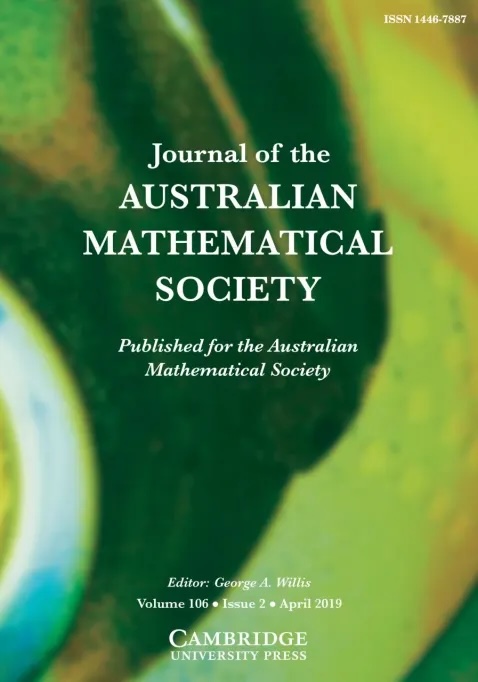 Positive laws on large sets of generators: Counterexamples fo infinitely generated groupsCristina Acciarri, and Gustavo A. Fernández-AlcoberJournal of the Australian Mathematical Society, 2010
Positive laws on large sets of generators: Counterexamples fo infinitely generated groupsCristina Acciarri, and Gustavo A. Fernández-AlcoberJournal of the Australian Mathematical Society, 2010Shumyatsky and the second author proved that if \(G\) is a finitely generated residually-\(p\) group satisfying a law, then, for almost all primes, the fact that a normal and commutator-closed set of generators satisfies a positive law implies that the whole of \(G\) also satisfies a (possibly different) positive law. In this paper, we construct a counterexample showing that the hypothesis of finite generation of the group \(G\) cannot be dispensed with.
@article{AccFerAl10, title = {Positive laws on large sets of generators: Counterexamples fo infinitely generated groups}, volume = {89}, doi = {https://doi.org/10.1017/S1446788711001145}, number = {3}, journal = {Journal of the Australian Mathematical Society}, author = {Acciarri, Cristina and Fernández-Alcober, Gustavo A.}, year = {2010}, pages = {289--296}, }
